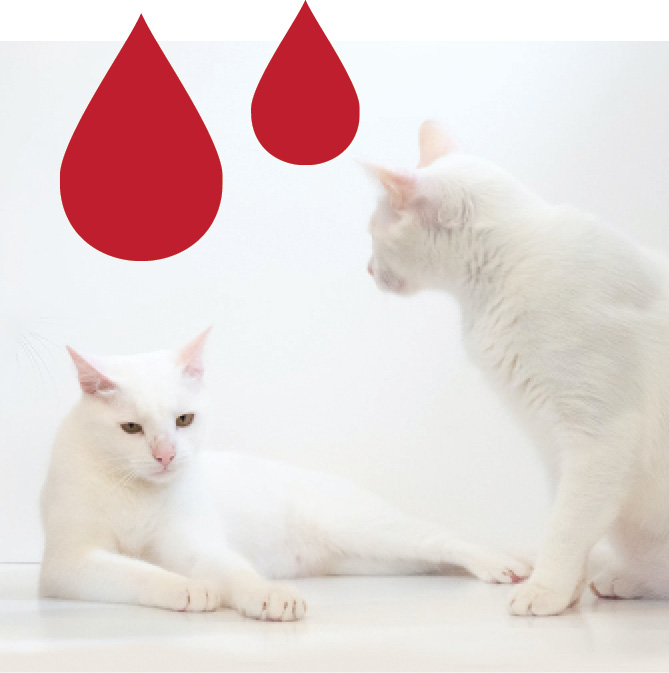

 othing is more alarming than when you walk into your feline boarding area and see blood in an enclosure, even if it is a very small amount. More times than not, the blood is from an aggressive cat that has injured itself during a struggle or a spat with one of their siblings. However, blood can also be from an internal medical issue.
othing is more alarming than when you walk into your feline boarding area and see blood in an enclosure, even if it is a very small amount. More times than not, the blood is from an aggressive cat that has injured itself during a struggle or a spat with one of their siblings. However, blood can also be from an internal medical issue.
When you find blood, the first step is to always identify where the blood is coming from. If the cat is actively bleeding, isolate it and apply pressure to stop the bleeding. Next, the owner should be notified. Then follow your facility’s policies on when to seek veterinary care.
Many times during the veterinarian pre-boarding appointment, the doctor mentions that the cat needs a dental, and the family elects to wait for a later time to schedule. When a cat with bad teeth bites their carrier or the boarding enclosure, several things could happen that result in visible blood. Blood from the mouth is usually either from gums that were so irritated they began to bleed or a tooth has fallen out. While blood from the mouth area is alarming, it usually tends to be a dental issue. The owners should still be notified immediately.
When a sibling loses their temper, blood can result from a swipe of the paw or a bite. It is important to remove the injured cat from the enclosure and find the injury. Basic first aid should be administered. The bleeding needs to be stopped, the wound cleaned and monitored for infection. If the wound is more than superficial, veterinary care should be obtained after the owners are notified.
In a case like this, I would not return the injured feline to the same boarding enclosure as their siblings. I would keep the cats separate and, if possible, keep them next to each other so they can still smell and possibly see their family but are safe from further aggression while in your care. A great tip to help avoid this problem is to give all the felines a nail trim at check-in.

This is the point where your boarding facility policies will come into play. The paperwork that the owner signed at check-in will be important in determining your next step. Did they agree to a veterinarian appointment in case of blood in the vomit, urine or stool? When will the cat go home? If the scheduled pickup is later today, my choice would be much different than if the owner will be gone another week or month. In these situations, notify the owner immediately then follow your facility’s policy.
Keep in mind that your policies and paperwork can be revised at any time. You may want to add a revision that is more specific to how you handle blood in your facility. It might be helpful for your business to have a line for owners to initial on your boarding paperwork that includes something to the effect of, “If blood is found in the vomit, urine or stool, a veterinarian visit will be required for which the pet owner will be billed.”
In my business, I have very specific policies that I have the owners initial at every visit. These are policies that help me sleep better at night knowing and ensuring I can live with the outcome when the worst happens.
Another policy your business may want to consider is having your staff first aid certified. Pet CPR and first aid classes have become more common and easier to attend in recent years. While it may not be possible to bring someone in during a staff meeting to teach CPR and first aid, there are other options that include getting staff certified at an industry expo or even online.
Blood should always be concerning during a boarding stay. While it is important to have policies and procedures in place on how to handle blood, having your staff educated is just as important. When you find blood, remember to stay calm and establish where the blood is coming from, and then follow your facility’s procedures for contacting the owner and seeking veterinary care.

